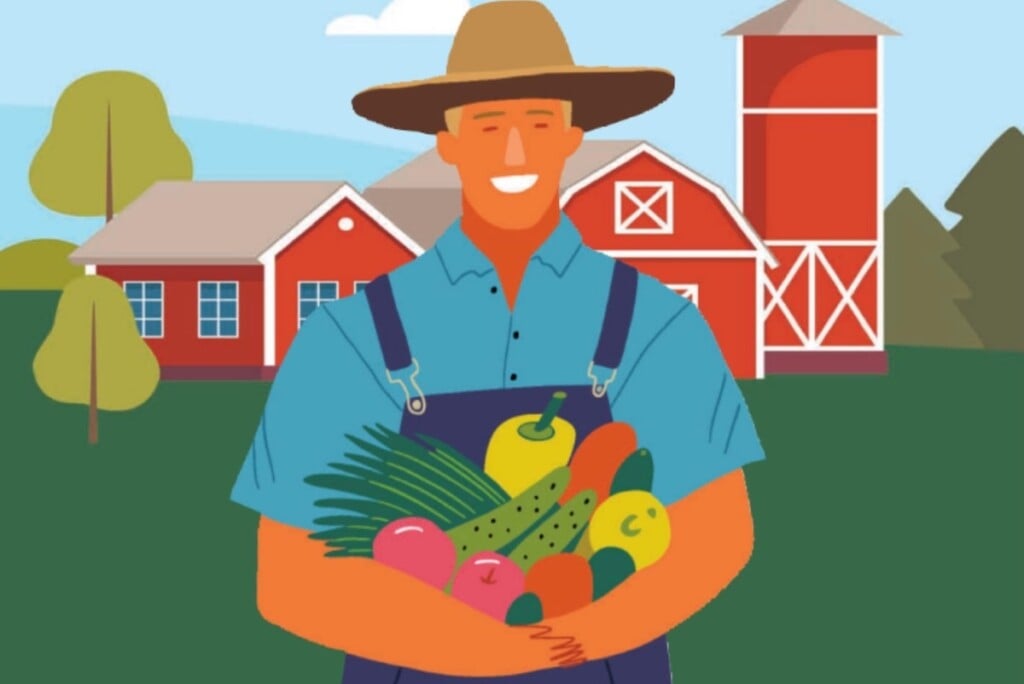Local Farming: Does It Have A Future?
Food is freshest when it’s grown nearby. But can we keep Bergen’s tiny remaining agricultural sector from disappearing forever?

Three centuries have brought Bergen County a lot of “bigger” and “better” and “more.” But life is trade-offs—one feature of the area has sharply diminished. In 1725, our region’s abundant farmland harvests fed much of New York City, a short trip across the Hudson River from the Alpine dock. Then came industrialization, an exploding population and suburban sprawl. Today, agriculture accounts for less than one percent of the county’s economic output. And yet in this, the state’s most densely populated county, whose economy is dominated by the retail, healthcare and service sectors, farms still dot the landscape, from semirural Mahwah to bustling Paramus.
Today there are 49 farms across Bergen, comprising 924 acres. Given Bergen’s suburban profile, that may sound impressive, but it represents a steep decline. In 1860, farms covered more than 123,000 acres across the county, representing roughly 80 percent of Bergen’s 232.8 square miles of land. In 1954, that number was down to 12,000 acres, and by the mid-’70s it had declined to 3,000, as farmland gave way to residential and commercial development. In 1982 the total was 2,700—and that, of course, was still almost three times the farm acreage of today.
Our farms no longer feed much of New York City or even much of Bergen. Given that the majority of our food is grown elsewhere in the state, or well beyond its borders, the fate of Bergen’s farms may not seem like a pressing concern. But Ken Aloisio, executive director of the Bergen County Open Space Trust Fund, who is spearheading an update of Bergen’s Farmland Preservation Plan, argues otherwise. “Farmland provides many economic, environmental and quality-of-life benefits to the county and its residents,” he says. “Once farmland is lost to development, those benefits are lost as well.”
THE YIELD OF BERGEN’S FARMS
The simplest agricultural definition of “yield” is what and how much a farm produces, and in the case of our county’s farms, that yield can be measured in a host of benefits, including:
• Fresh food—with the stress on “fresh.” Jon Friedland, owner of Closter Farm, notes that “the average vegetable in the United States travels 1,500 miles to get to the grocery store.” On the other hand, the vegetables he sells at his Closter farmstand travel about 300 feet, which makes them fresher than most of the food in the produce aisle of your local supermarket. It also significantly reduces their carbon footprint.
• A connection to the food system. Too many of our kids operate on the implicit assumption (even if intellectually they know better) that food originates in the supermarket. But buying at farmstands, frequenting farmers’ markets, picking your own produce or joining a CSA (a community-supported agriculture project, a kind of food subscription service that supplies members with fresh, locally grown produce throughout the growing season) can help kids understand and appreciate where their food comes from. And that has a benefit of its own, says Stacey Antine, a registered dietitian nutritionist and founder of Wyckoff-based HealthBarn USA, whose mission is to teach kids about nutrition and agriculture. “It’s important for them to experience locally grown food, which impacts their food and nutrition knowledge to make better choices for their health,” she says. The pick-your-own experience, she says, can be especially valuable: “Harvesting a carrot or a fresh strawberry is super exciting and will make a lasting memory in kids, [inspiring them] to continue demanding nature’s candy.”
It’s also advantageous, Friedland says, to know the farmer: “You can come and talk to us and understand every single ingredient, every single food and every single process that’s involved in growing and harvesting it.”
• Retaining open space. “Farms limit urban sprawl and provide habitat for beneficial species,” says Aloisio. The latter is especially true for farms that restrict or reduce the use of pesticides—far more likely on small farms than on the vast tracts that constitute much of modern agribusiness. “When we lose green spaces, everyone loses, including Mother Nature,” says Antine.
• Tying us to our history. Bergen became one of New Jersey’s first four counties (along with Essex, Middlesex and Monmouth) in 1683, and its agricultural roots go back even further. To lose our working farms, supporters of farmland preservation here contend, would be to lose touch with that history. “Our ties to agriculture go back 400 years,” says David Epstein, president of The Land Conservancy of New Jersey (LCNJ), which has been an active partner with the county in working to preserve open space, including farmland, “and for some 360 years, the main focus of everything in Bergen County was farming. There were railroads that went through the county specifically for the purpose of moving farm products into urban centers like New York, Paterson and other places.” He notes that in his hometown of Ramsey, there are still trolley tracks that were used to carry crops from Mahwah to Paterson and beyond. Retaining farmland helps us make sense of these and other vestiges and keeps a slice of Bergen’s agricultural past alive.
SMALL FARMS, BIG HEARTS
You won’t find big ag in Bergen. The average size of a farm here is 14 acres, and most farms are owned and run by families or single individuals, passionate about the way they make their living. At Closter Farm, Friedland raises chickens and grows 70 different types of vegetables on seven acres. He was already raising beef and growing fruit at his farm in the Hudson Valley, and when the Closter farm—which had previously been in the same family for 70 years—came up for sale in 2019, he jumped at the opportunity to expand his business to Bergen County, a place he’d visited frequently growing up and had come to love. Committed to organic farming, he sees himself and his staff as stewards of the soil. “We practice regenerative farming—regenerating the soil—so we don’t have runoff, we don’t depend on petrochemicals and giant amounts of fertilizer leaching into the environment, leaching into the waterways,” Friedland says.
Suburban farming, notes Jared Krawitz, farm manager at Closter Farm, often doesn’t enjoy the structural support farms receive in rural, largely agricultural, communities—farm-supply stores, for example, and ancillary businesses such as well drillers and greenhouse builders, as well as a large community of fellow farmers from whom to learn. “But,” he says, “once farmers are established, their primary struggle is selling their product,” and that can be easier in a more densely populated area. “We’re incredibly lucky at Closter Farm,” he says, “to be right in the heart of an amazing community of people who want local, organic food.”
Almost all of Closter Farm’s food is sold at its adjacent farmstand, but other Bergen farms, like the MEVO Fresh Roots Farm in Mahwah (the letters stand for Mahwah Environmental Volunteers Organization), sell their produce at farmers’ markets; still others, like Joy’s Farm in Paramus, sell through CSAs. And not all of Bergen’s farms grow vegetables or raise livestock. On 17 acres of officially preserved farmland in Mahwah, Erin Giannios runs Bergen County Horse Rescue. Originally, the property, owned by Jamie Dator, was used to board horses—Giannios boarded her first horse there when she was 14. But when several owners abandoned their horses at the farm, Dator, Giannios says, “put back every dollar this place made into caring for those horses that weren’t paying the bills anymore.” Nine years ago, Dator and Giannios made it official and formed Bergen County Horse Rescue.
About six years before that, after several unsolicited offers were made on the farm, Dator approached Bergen County’s Agriculture Development Board about preserving the farmland in perpetuity. “Jamie fought tooth and nail to preserve it,” Giannios says, “and thank God for that.”
THE PROCESS OF PRESERVATION
There are a number of ways farmland can officially be preserved, but to date, only the program known as County Easement Purchase has been used in Bergen. Under this program, the state and county (and sometimes the municipality and/or one or more nonprofit organizations) pay the land’s owner for an easement on the property that ensures that it will never be used for nonagricultural purposes. That easement remains in place in perpetuity, even if the property is sold.
Not all farms in Bergen are eligible for preservation. “The criteria for preservation deal with size, zoning, tillable acreage, soil quality, steep slopes and wetlands,” says Aloisio, who notes that, given these criteria, only two additional Bergen County farms currently qualify for preservation. His hope, and that of his partners in the LCNJ, is that the old preservation plan will be updated in such a way as to make additional farms candidates for preservation.
Official preservation has been a boon to Giannios, who knows that she can continue saving horses, and savoring the farm’s open spaces, confident that the land will never hold a mini-mall or a McMansion. “That’s so important,” she says, “especially in this technological society that we’re living in. I see it all the time: When you step onto one of these farms, you’re transformed back into a different time. It’s just a magical thing.”
A SELECTION OF BERGEN COUNTY FARMS
You can support Bergen’s farms by buying their products.
- Abma’s Farm, Wyckoff—CSA, farm store, and more; abmasfarm.com
- Closter Farm, Closter—farm store; closterfarm. com
- Demarest Farms, Hillsdale—pick-your-own, farm store; demarestfarms.com
- Joy’s Farm, Paramus—CSA; localharvest.org/ joys-farm-M6605
- MEVO Fresh Roots Farm, Mahwah—farming education, CSA, Ramsey farmers’ market; mevo.org/ farming
- The Old Schraalenburgh Farm, Closter— working historic farm; produce goes to local food pantries and, on the property, to the Farm Café; abramdemareehomestead.org
To support Bergen County Horse Rescue, go to bergencountyhorserescue.org

